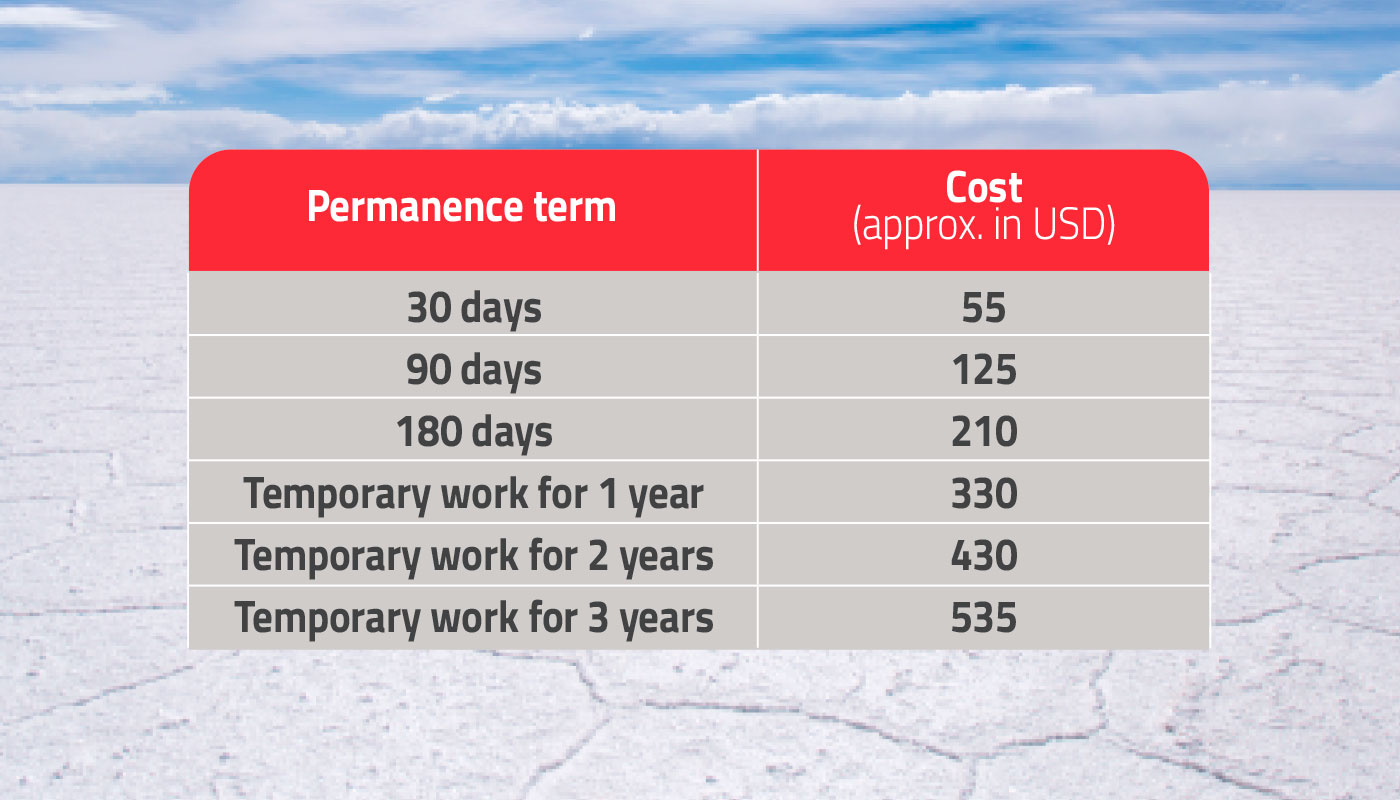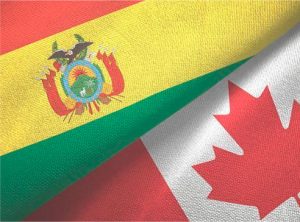Interview: Canadian-Bolivian Chamber of Commerce
Interview: Immigration Process for Canadian Citizens visiting to Bolivia
The Canadian – Bolivian Chamber of Commerce (“CBCC”) is a non-profit organization looking to provide commercial support to Bolivian companies who are interested in showcasing their products or services in Canada on one hand, and/or Canadian companies interested in investing and purchasing products or acquiring services in Bolivia, on the other.
2. How is the CBCC currently operating and what projects do you have in mind for 2022?

The CBCC’s work ethics are based on efficiency and respect for others by sharing a strong sense of responsibility and commitment with the business community The Canadian – Bolivian Chamber of Commerce was created in June 2017 and it was incorporated on Federal level with the idea of meeting the needs to have an organization that encompasses a network of Bolivian professionals willing to provide support to Bolivian and Canadian companies interested in business exchange and investment opportunities between both countries.
From its creation and up until this date, the purpose of the project is to provide general and specific business information, market trends, commercial alerts, networking, support for events and generate interest in different sectors such as agriculture, foodstuffs, industry and services through a subscription model carried out by experienced Bolivian professionals residing in Canada. The CBCC’s annual plan includes a post-pandemic reactivation for micro and medium-size companies and addressing the specific requests of some specific.
3. What type of activities are promoted by the CBCC?

The CBCC is Bolivia’s commercial eyes in the Canadian market for Bolivian companies and professionals. Therefore, the CBCC’s activities focus in:
4. What are the main industries that are part of the CBCC?
The CBCC is a multisectoral organization that provides commercial support for goods and services. The main industries are foodstuffs, agribusiness, mining, education, tourism.
5. How does the CBCC perceive the commercial development between Bolivia and Canada?
Canada and Bolivia have enjoyed official bilateral diplomatic relations since 1961.
The development of bilateral programs between Canada and Bolivia are aligned with Bolivia´s 2015 – 2024 national plan for social and economic development, and its priorities are the elimination of poverty, and the promotion of health and sustainable economic growth.
In spite of not having a Free Trade Treaty, Canada acts as an active commercial partner, investing in multilateral organization and funds that benefit Bolivia. The current development program focuses on women´s rights, health and sexual and reproductive rights, as well as inclusive green growth. Most initiatives are implemented to a large extent in indigenous communities. Canadian NGOs are particularly active Bolivia and approximately 100 Canadian expert technicians share experiences with Bolivia every year.
In 2020, bilateral commerce between Canada and Bolivia added up to $272.7 million. Canadian exports totaled $16.3 million (mainly vegetables, machinery, wheat and reagents for medical diagnoses). Canadian imports totaled $256.4 million (mainly silver, zinc and other precious metals and cereals).
It is expected that these relations will be maintained and continue growing in post-pandemic
6. The activities that are currently being implemented by the CBCC focus on undertakings and the professional development of women in Canada. Can you offer more details on this?
One of the CBCC’s objectives is to foster entrepreneurship and provide commercial support to business initiatives where women and men have the equal opportunities. To reach this goal, concrete and attainable measures have been created and implemented within the CBCC in order to facilitate the empowerment of male and female professionals and entrepreneurs. This is achieved by promoting activities that highlight business owners’ achievements in digital platforms along with the help of community-based marketing campaigns to raise awareness. Women focused activities were showcased following worldwide women celebration dates in an effort to highlight and celebrate Bolivian women’s achievements in Canada.
Among other activities, the CBCC also provided support to the Bolivian Embassy in Canada in different events and was invited to participate in various activities representing the Bolivian community.

7. Can you detail some representative examples of the CBCC’s role in terms of business development between Canada and Bolivia?
Our services focus on providing support for the international showcase of Bolivian companies in Canadian territory. To that extent, the CBCC:
8. What are the benefits of being affiliated to the CBCC?
The CBCC fosters a constructive environment that allows companies and businessmen with interests in Bolivia and Canada to expand their contacts network facilitating new alliances and associations.
The CBCC has the necessary experience to seek attractive opportunities to undertake successful businesses, forge alliance and offer unique activities designed to create a more vibrant economic climate.
Some of the benefits that the CBCC has to offer to its members are:
The CBCC tries to offer personalized benefits based on the needs of each affiliate.
According to Bolivian Immigration Law, Canadian citizens correspond to the first group nº1. Travelers included in this group do not require a visa to enter the country as tourists. However, immigration status for group nº1 travelers can change according to the activities they may decide to undertake in Bolivia, for example, work, study, family or other activities.
2. In which cases Canadian citizens need a visa to enter Bolivia?
Law 370 and regulatory decree D.S. 1923 establish that Canadian citizens do not require a visa to enter Bolivia for tourism needs. The presentation of a valid passport (valid for at least 6-months prior to expiry date) will suffice to enter Bolivia. However, Canadian citizens entering Bolivia for work will need to apply for a transitory permanence visa.
3. What are the costs involved to obtain a visa?

4. What are the conditions of this visa (tourist, work, maximum term)?
The authorization for tourist or visitor activities is granted to Canadian citizens through an entry stamp for the purpose of rest and recreational activities. The tourism visa does not allow Canadian citizens to undertake any remunerated or profitable activities in Bolivian territory. The maximum term of the visa is 90 days per calendar year.
The transitory permanence visa applies to Canadian citizens looking to carry out remunerated or profitable activities in Bolivian territory, under a work contract or not, for a period of 180 days per calendar year at most.
The temporary permanence visa to develop work activities is granted to Canadian citizens that will carry out remunerated or profitable activities in Bolivian territory, with or without a relation of dependency, for a period of three years at the most.
5. With respect to the safety measures resulting from the Covid-19 pandemic, are there any special conditions applicable to Canadian citizens that wish to enter Bolivian territory?
In accordance to MR No. 0001 dated April 27, 2022 the following epidemiological surveillance measures are applicable all citizens that wish to enter Bolivia territory:
6. In your experience, how frequently do migratory dispositions change in Bolivia?
Migratory dispositions change every 3 or 5 years, however internal instructions can be modified between 5 and 7 times per year.

7. In your experience, what difficulties did you encounter in terms of immigration?
The difficulties that arise in terms of immigration law in Bolivia are mainly due to the fact that law enforcement tends to be uneven depending on the immigration office location or border control.
8. What practical advice can you offer travelers that need to undertake migration proceedings in Bolivia?
We recommend the following:

McCarthy Tétrault, PPO and Robalino hosted a brunch to introduce and discuss the topic of “Emerging Latin American Mining Jurisdictions: Bolivia and Ecuador” at the Royal York Hotel in Toronto on June 14.
PPO partners Pablo Ordóñez (Tax) and Mattias Garrón (Energy and Natural Resources) attended the event and participated in the discussion.
This event was held alongside the PDAC’s Premier Mineral Exploration and Mining Convention in Toronto, Canada. PPO participated in the convention for the fifth consecutive year.